
Enhancing Student Outcomes and Teacher Practice through Math Mastery: A Comprehensive Study Tour and Curriculum Framework Development.
As a primary school teacher with ten years of classroom experience, I’ve had the opportunity to teach across year levels from Prep to Year 3. Throughout my teaching journey, I’ve developed a strong passion for ensuring that every student feels a sense of success in the classroom and equally, that every teacher feels confident and equipped to deliver high-quality lessons. Over time, I’ve become increasingly interested in how we can bring greater consistency and clarity to the way we teach mathematics across the early years.
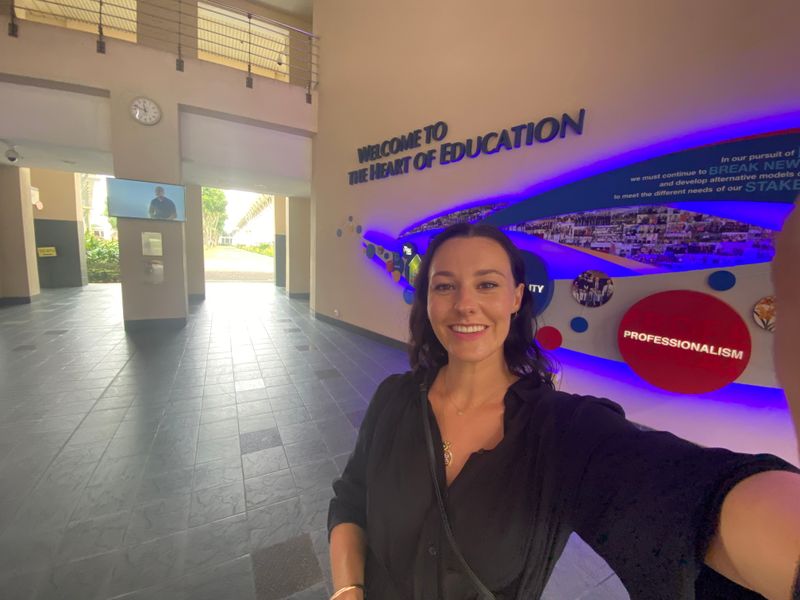
In 2024, I was fortunate to be awarded the inaugural Toowoomba Grammar School Teaching Fellowship to explore this interest more. My proposal, titled Enhancing Student Outcomes and Teacher Practice through Math Mastery: A Comprehensive Study Tour and Curriculum Framework Development, focused on investigating how the Math Mastery approach could strengthen both student understanding and teacher instruction in mathematics. This opportunity took me to Singapore to investigate the Math Mastery approach - an internationally recognised model of mathematics instruction that supports every student to achieve deep understanding through carefully sequenced, explicit teaching.
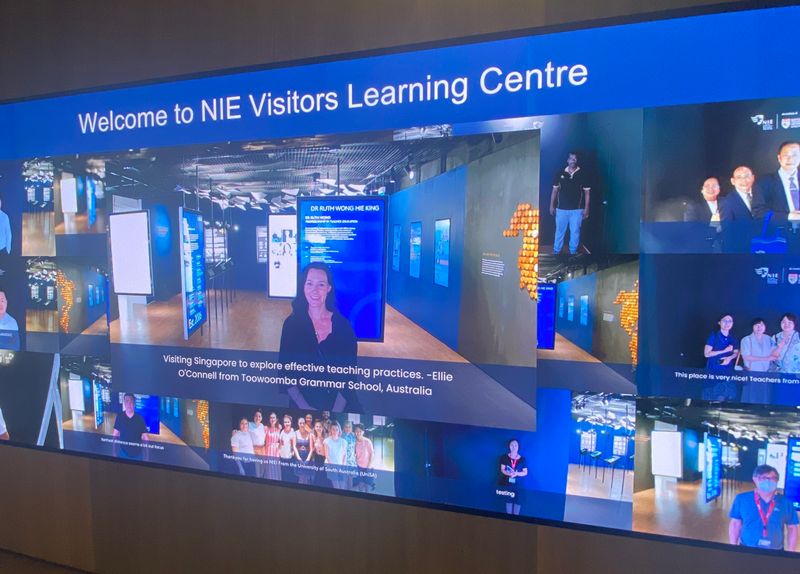
Why Mathematics? Why Now?
Across Australia, there is growing national concern about the long-term decline in mathematics achievement. Reports such as the Gonski Review (2018) highlight that many students are not mastering the basic skills needed for future learning, and that teachers need more explicit, structured tools to support all learners. In the early years of schooling—where concepts are first introduced, and mathematical mindsets are formed—it’s crucial that instruction is clear, consistent and effective. Gaps in understanding at this stage can have long-lasting effects on a child’s confidence and progress. The fellowship was an opportunity to examine international best practices and bring back evidence-informed strategies that could enhance both student outcomes and teacher practice in our own School.
Learning from Singapore: Schools and Insights
During my study tour in Singapore, I visited two leading international schools: Dulwich College and Invictus International School. Both schools use mastery-based approaches to mathematics, with structured, well-sequenced programs designed to develop deep conceptual understanding. At Dulwich College I observed math lessons from Years 1 to 5 that emphasised both mastery and practical application. The classrooms fostered a calm, focused learning environment in which teachers guided students through new concepts using clear, structured instruction, ensuring mastery through modelling, guided practice and checking for understanding before progressing. I also engaged in discussions with the school’s mathematics leadership team, who shared their planning processes and how they support teachers to differentiate within whole-class teaching.
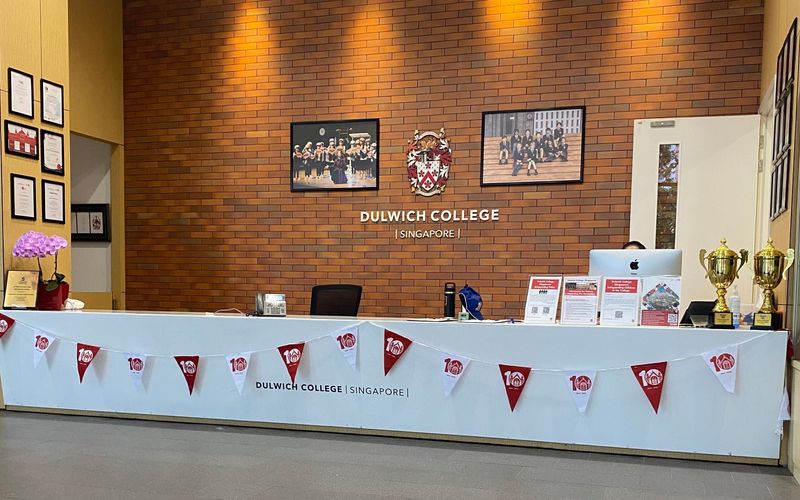
Invictus International School offered a contrasting yet equally valuable perspective. With a diverse cohort of learners and a flexible curriculum model, their team demonstrated how mastery principles can be embedded in a range of contexts. I also had the opportunity to meet with local educational consultants and curriculum developers, who offered insights into how Singapore’s national curriculum supports cumulative learning, daily review and concept mastery from the early years onwards.
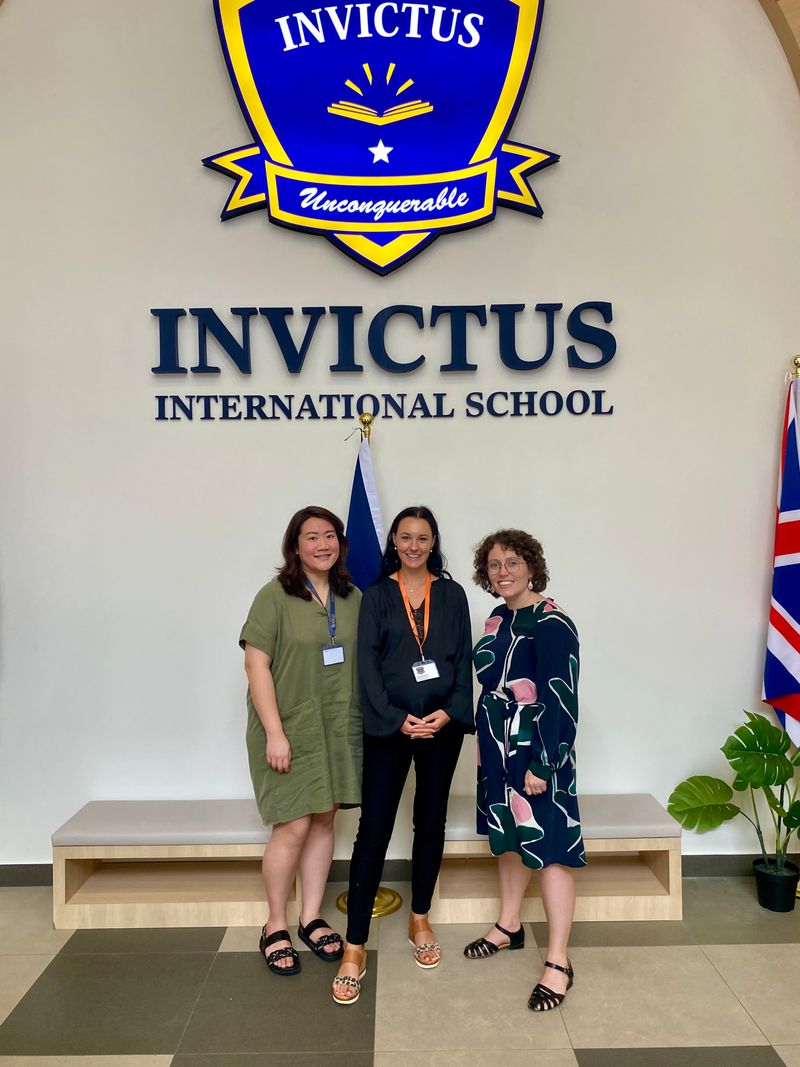
Key Findings: What Makes Mastery Work?
My observations confirmed the power of structured, explicit teaching in building strong foundations in mathematics. These were the key elements that stood out across all settings:
- Clear Learning Objectives
Teachers clearly define what students need to know and be able to do at the end of each unit or lesson.
- Whole-Class Instruction with Embedded Differentiation
Rather than streaming students by ability, mastery classrooms taught concepts to the whole class while using questioning, scaffolding and targeted support to meet individual needs.
- Corrective Instruction
Students who don't achieve mastery receive additional instruction or support to address knowledge gaps.
- Cumulative, Carefully Sequenced Learning
Each lesson built directly on the last, with time allocated for review and consolidation. This ensured that no student was left behind and that concepts were truly understood before new material was introduced.
- Mathematical Language and Reasoning
Teachers modelled precise vocabulary and encouraged students to explain their thinking. This supported deeper reasoning and helped students internalise core concepts.
- Learning Routines
Clear instructional routines and behaviours are established in every classroom, reinforcing expectations and supporting learning.
- Lesson Resources
Hands-on materials and visual examples are carefully chosen to help students connect with new concepts in ways that suit their learning needs.
- Fluency
Essential number facts are practised until automatic, helping students reduce cognitive load, enhancing students’ ability to focus on new and more complex ideas.
- Calm, Confident Learners
Most powerfully, students appeared confident, focused and proud of their mathematical thinking. The clear structure and shared learning journey contributed to a positive and inclusive classroom culture.
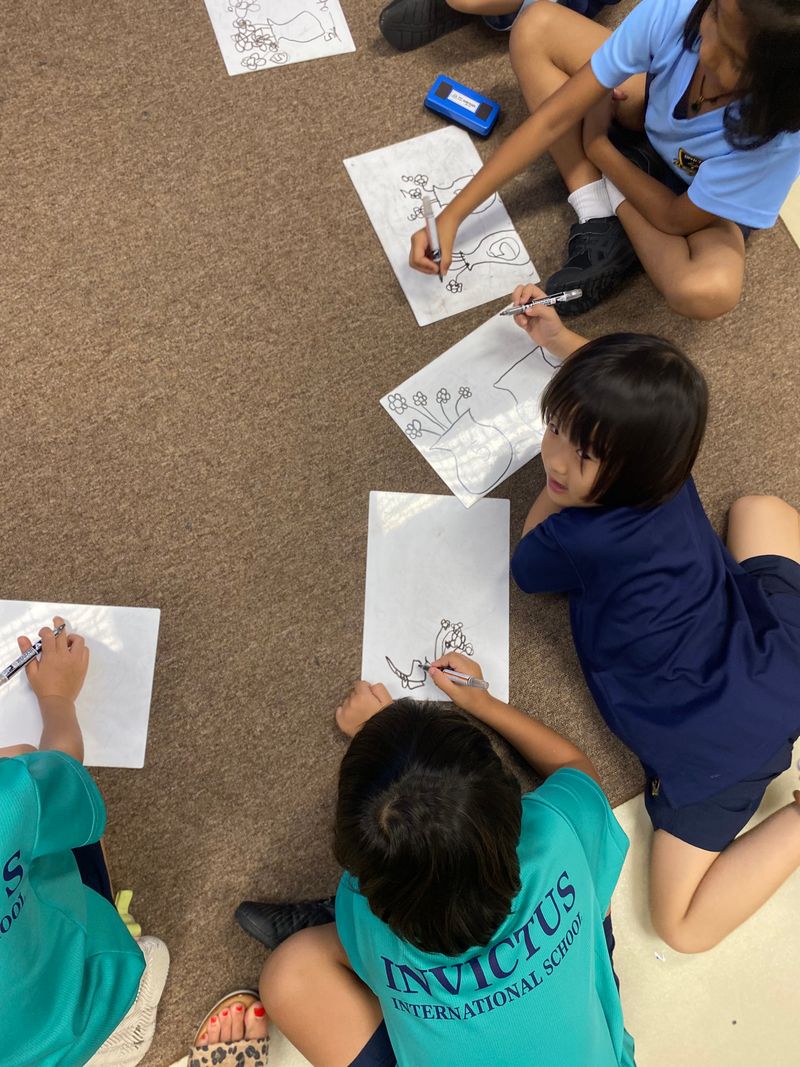
Global Perspective: Insights from Kinder World School
As a part of my research, I was able to engage in a conversation with Peter Baker, Principal Supervisor of 13 KinderWorld International Schools across Vietnam, I was able to dive deeper into how the Math Mastery approach works in large, diverse educational settings. These schools have adopted the Singapore Math model, a mastery-based framework built around explicit teaching and cumulative learning - many of the same principles I explored during my study tour.
Peter shared that their decision to adopt this approach was driven by a need for a consistent, evidence-based program that teachers could pick up quickly, deliver confidently and implement cost-effectively. “We started the explicit teaching model a couple of years back,” he explained. “We call it the KinderWorld Model. Retrieval practice to strengthen knowledge and problem-based application of learning is also included. I think it certainly makes a difference.”
What stood out to me in our discussion was just how closely their journey mirrors our own at TGS. We have already embedded strong practices in literacy through well-structured, whole-school programs that align with explicit teaching and the science of learning. However, mathematics remains an area where we see room for greater consistency and greater gains.
While our data confirms that we continue to perform above the state average in mathematics, recent NAPLAN results highlight a national decline in numeracy - a trend that we are aiming to avoid in our own School’s results. While we continue to do well, we have an opportunity and a responsibility to do even better for our boys. This is not just a local issue. In 2015, the Office of the Chief Scientist collaborated with ACARA to examine schools across Australia that had made significant improvements in numeracy over two years. Their report found that mastery-oriented environments were a consistent feature in high-performing schools (Smith et al., 2028).
When I asked Peter how the performance of his students compared to their peers in Australia, his response was compelling:
“We’ve had feedback from parents - many of whom are teachers - saying that when their children return to Australia, they are at least one to two years ahead in mathematics compared to their peers at home.”
This reinforces what global research has been saying for some time: structured, explicit, mastery-based teaching works. And more importantly, it works for all learners - not just the confident few.
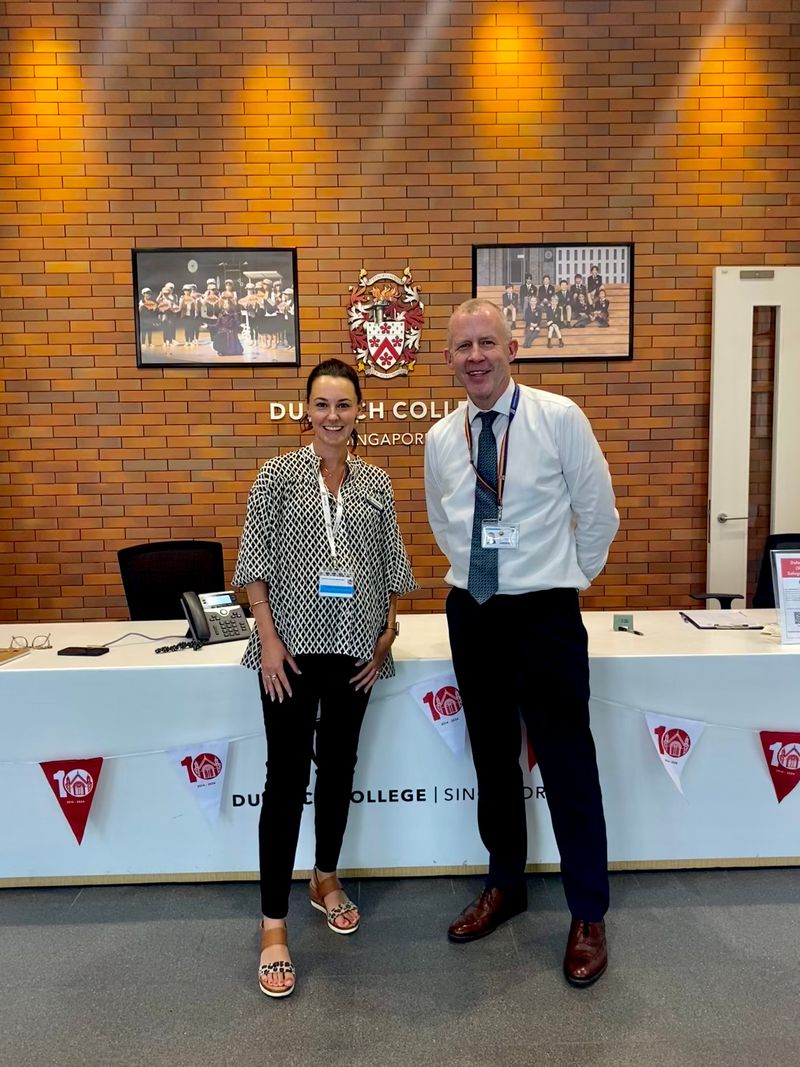
Bringing It Home: What’s Next for TGS?
I’m incredibly grateful for the opportunity this fellowship has provided - not only in shaping and deepening my own practice, but in contributing to a broader, shared vision for mathematics at TGS. This experience reinforced my belief that every student can succeed in mathematics when we give them the right tools, time and teaching. We are now laying the foundations for a clear and united approach to numeracy, one that will equip every boy with the confidence and skills to succeed - not just in the classroom, but throughout their schooling and beyond. And just as importantly, we’re building a community of confident teachers who are equipped to deliver lessons that are clear, consistent and deeply impactful.
I would like to sincerely thank Dr John Kinniburgh for granting me the opportunity to undertake this Fellowship. His support and encouragement throughout the process has been instrumental, and I am truly grateful for his guidance and mentorship. Dr Kinniburgh’s commitment to prioritising high-quality professional development for staff continues to shape a culture of growth and excellence in teaching and learning at TGS.
Latest Blog
Remembering James Russell McWilliam AO
Jim McWilliam was a pioneering agricultural scientist and the first Director of the Australian Centre for International Agricultural Research (1982–89), where he built lasting partnerships between Australian researchers and developing countries. James Russell McWilliam AO Born near Leyburn, Queensland, Jim studied forestry at the University of Queensland and in the US, completing a PhD at Yale. He worked with the Queensland Forestry Service, CSIRO and later as Professor of Agronomy at the…
Boarding is who we are
Our boarders make up nearly one third of our student cohort from Years 5 to 12, which enables us to consider the boarding experience in all that we do at the School. Every boarding experience at TGS is about equipping boys with the skills to function as a student and preparing them for their future.
Making a Positive Impact with Homework Assistance
The Anglicare Homework Assistance Program (HAP), run in conjunction with Darling Heights State School, sees many of our boys volunteer their time on Wednesdays after class to help many young refugee and primary school students facing challenging times with their homework, or to chat and play games. Our boys thoroughly enjoy meeting, supporting and learning about the lives of the younger children. This forges community connections and fosters inclusion for the Darling Heights students; it also…
Fresh Faces Guide - TGS Sportsmen into the Fray
With their dedication to excellence and player development, TGS athletes are in good hands as they navigate the challenges and triumphs of competitive sports.
Honouring Tradition, Preparing for the Future
They will invariably be inspired by effective teaching and the satisfaction of personal achievement will always be motivating. At Toowoomba Grammar School, the power of high-quality instructional practices has resulted in the development of a strong academic culture that has endured for nearly 150 years. Preserving core principles provides stability and continuity. However, we must be open to continuously adapting our methods so that our students are well-prepared for the ever-changing world…
We See You - Mitchell Wilkes
That was the heart-wrenching diagnosis for Year 10 student, Mitchell Wilkes, right on Christmas in 2021. Mitchell’s mum noticed he wasn’t reading properly and had a gut feeling that there was something wrong with his eyesight. A trip to the optometrist revealed a thinning in the retina, and further tests showed that Mitchell had a genetic condition called Stargardt Disease, a juvenile macular degeneration illness that results in slow central vision loss.
Correcting our School's official record commemorating World War I and World War II
On the eve of our 150th year, we're calling on the School's alumni, parents, past parents and greater community to aid us in correcting the record of our involvement in two watershed geopolitical events of the 20th century. For the last four years Toowoomba Grammar School Museum Volunteers, Mrs Ann Hallam and Mrs Sue Palmer, have been updating the School records on Old Boys, staff and Trustees for the World War I and World War II theatres of war. Over the years several staff and volunteers have…
A Pioneering Woman of TGS
My late husband was a teacher, and our four children are all teachers, which we encouraged them to do because it is the best job in the world. It’s hard to believe I’ve been here for 36 years, working under four Headmasters: Mr Bill Dent, Mr Hugh Rose, Mr Peter Hauser and now Dr John Kinniburgh. I still drive into the School each day and smile, looking at the beautiful place it is — magnificent ovals, gracious trees and historically significant buildings. It is difficult to express the…
NZ Rugby Tour success, more than winning matches across the Ditch
The teams were undefeated and it was a trip the players will never forget. This tour was years in the making and heralds a new era of touring and hosting different rugby schools to give our players opportunities for growth as athletes and as people. Head of Sport - Rugby, Mr Lincoln Clapham, explained they selected 46 students to take part in the ten-day tour and began training last year. From Term 1 onwards, the squad trained twice weekly on the oval plus two and sometimes three gym sessions…